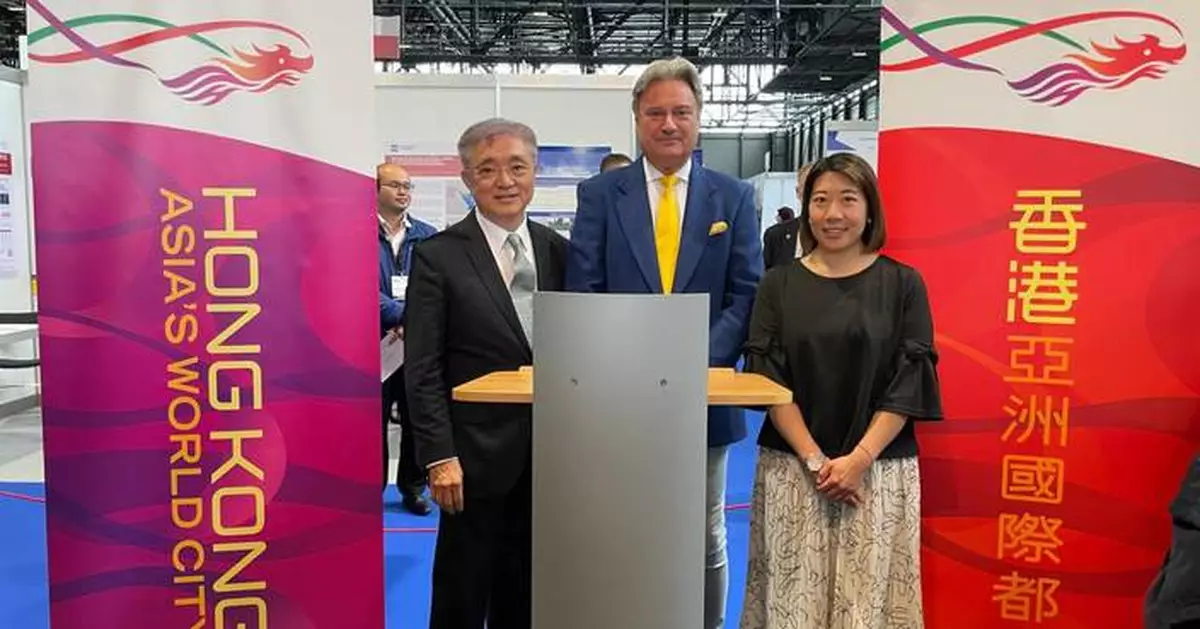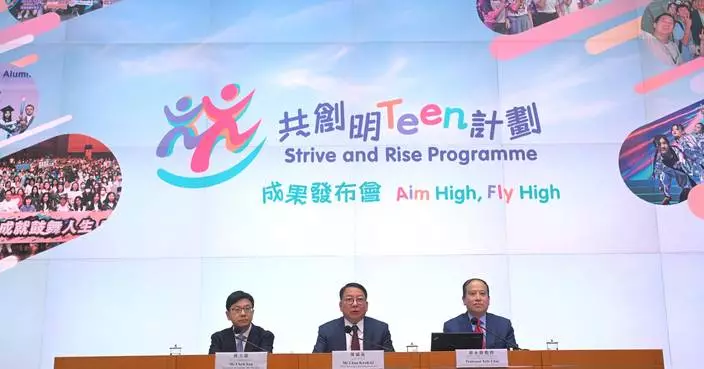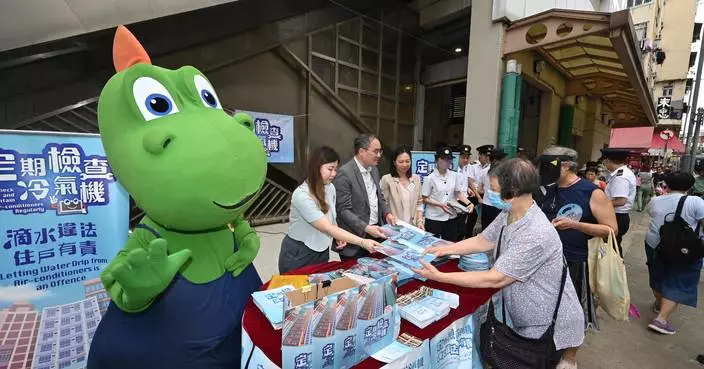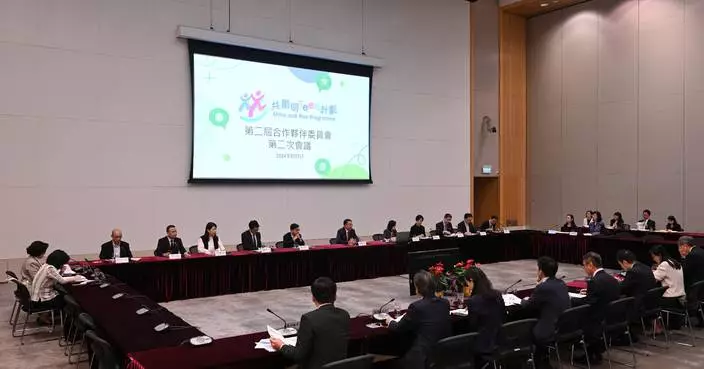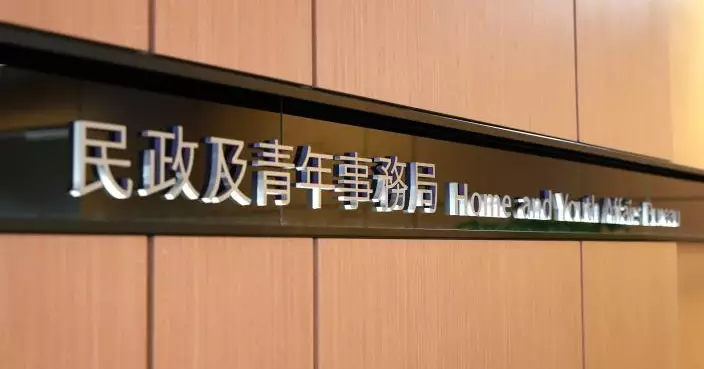Discover hong kong's cutting-edge inventions at the international exhibition of innovations in geneva
The Hong Kong Economic and Trade Office, Berlin (HKETO Berlin) hosted a reception on the occasion of Hong Kong's participation in the 49th International Exhibition of Inventions of Geneva on April 19 (Geneva time).
A Hong Kong delegation of close to 700 participants from 40 institutions, including universities, research and development (R&D) centres, laboratories, technology companies, government departments, and primary and secondary schools, exhibited more than 360 projects at the exhibition. Among over 1 000 inventions this year, the Hong Kong delegation won 28 Gold Medals with Congratulations of Jury and 114 Gold Medals, totalling a record high of over 350 prizes.
The Government accords top priority to promoting innovation and technology (I&T) development and establishing Hong Kong as an international I&T centre. Speaking at the reception, the Director of the HKETO Berlin, Ms Jenny Szeto, highlighted the Government's commitment and recent policies to foster an innovation-friendly environment in Hong Kong, in particular supporting R&D activities and commercialisation of their outcomes.
"In this year's Budget, we have doubled the maximum funding to the Technology Transfer Office of each specified university, and will also be providing annual subsidies to nurture start-up development within the universities. And just last year, we have launched the Research, Academic and Industry Sectors One-plus Scheme to promote the '1 to N' transformation. The scheme aims to encourage the commercialisation and technology transfer of universities' R&D outcomes, and will fund at least 100 research teams from local universities which have good potential to become successful start-ups," Ms Szeto explained.
In addition, the Government has also been spearheading efforts to attract I&T talent. To accelerate the expansion of the talent pool, the Government has launched the Technology Talent Admission Scheme, providing a fast-track arrangement for companies to admit young tech talent from abroad to undertake R&D work in Hong Kong.
Founded in 1972, the International Exhibition of Inventions of Geneva is the largest global exhibition exclusively devoted to inventions. This year's event showcased a record high of more than 1 000 inventions from about 40 countries and regions.
About HKETO Berlin
HKETO Berlin is the official representative of the Hong Kong Special Administrative Region Government in commercial relations and other economic and trade matters in Switzerland as well as Austria, the Czech Republic, Germany, Hungary, Poland, the Slovak Republic and Slovenia.

Hong Kong presents innovative projects at International Exhibition of Inventions of Geneva Source: HKSAR Government Press Releases
High-level meeting with japanese officials: urgent concerns over fukushima's nuclear contaminated water discharge
The Secretary for Environment and Ecology, Mr Tse Chin-wan, met the Parliamentary Vice-Minister for Agriculture, Forestry and Fisheries, Mr Takahashi Mitsuo, and the Consul-General of Japan in Hong Kong, Mr Kenichi Okada, today (May 3) upon request and discussed about the discharge of nuclear-contaminated water in Japan.
Mr Tse reiterated at the meeting that the Hong Kong Special Administrative Region (HKSAR) Government has come to the view that there is currently no guarantee from the Japanese authorities that their purification and dilution system can operate continuously and effectively in the long term, and that the discharge will not pose any potential risks to food safety and marine ecology. Safeguarding food safety and public health in Hong Kong is the responsibility of the HKSAR Government, thus corresponding precautionary measures must be taken. The HKSAR Government will closely monitor developments of the discharge, so as to obtain more monitoring and scientific data in order to further examine the impact of the Fukushima nuclear-contaminated water discharge on food safety, and keep under review relevant counter measures. Should anomalies be detected, the Government does not preclude further tightening the scope of the import ban.
In response to the Japanese Government's earlier decision to discharge nuclear-contaminated water at the Fukushima Nuclear PowerStation into the sea, the Director of Food and Environmental Hygiene issued a Food Safety Order which prohibits all aquatic products, sea salt and seaweeds originating from the 10 metropolis/prefectures, namely Tokyo, Fukushima, Ibaraki, Miyagi, Chiba, Gunma, Tochigi, Niigata, Nagano and Saitama, from being imported into and supplied in Hong Kong.For other aquatic products, sea salt, and unprocessed or processed seaweed from Japan that are not prohibited from being imported into Hong Kong, the Centre for Food Safety of the Food and Environmental Hygiene Department will conduct comprehensive radiological tests to verify that the radiation levels of these products do not exceed the guideline levels before they are allowed to be supplied in the market.
Besides, all vegetables, fruits, milk, milk beverages and dried milk originating from Fukushima are banned from importing into Hong Kong while such foods originating from the four prefectures nearby Fukushima, i.e. Ibaraki, Tochigi, Chiba and Gunma, are allowed to be imported on the condition that they are accompanied with a radiation certificate and an exporter certificate issued by the Japanese authority. Chilled or frozen game, meat and poultry, and poultry eggs originating from the above five prefectures are allowed to be imported on the condition that they are accompanied with a radiation certificate issued by the Japanese authority which shows the radiation levels do not exceed the guideline levels of the Codex Alimentarius Commission.

Source: AI-generated images



